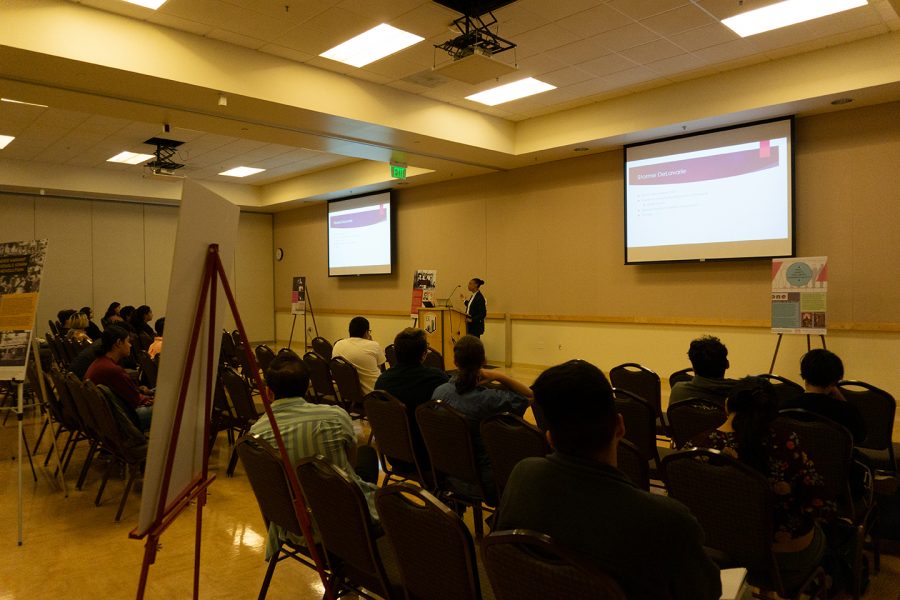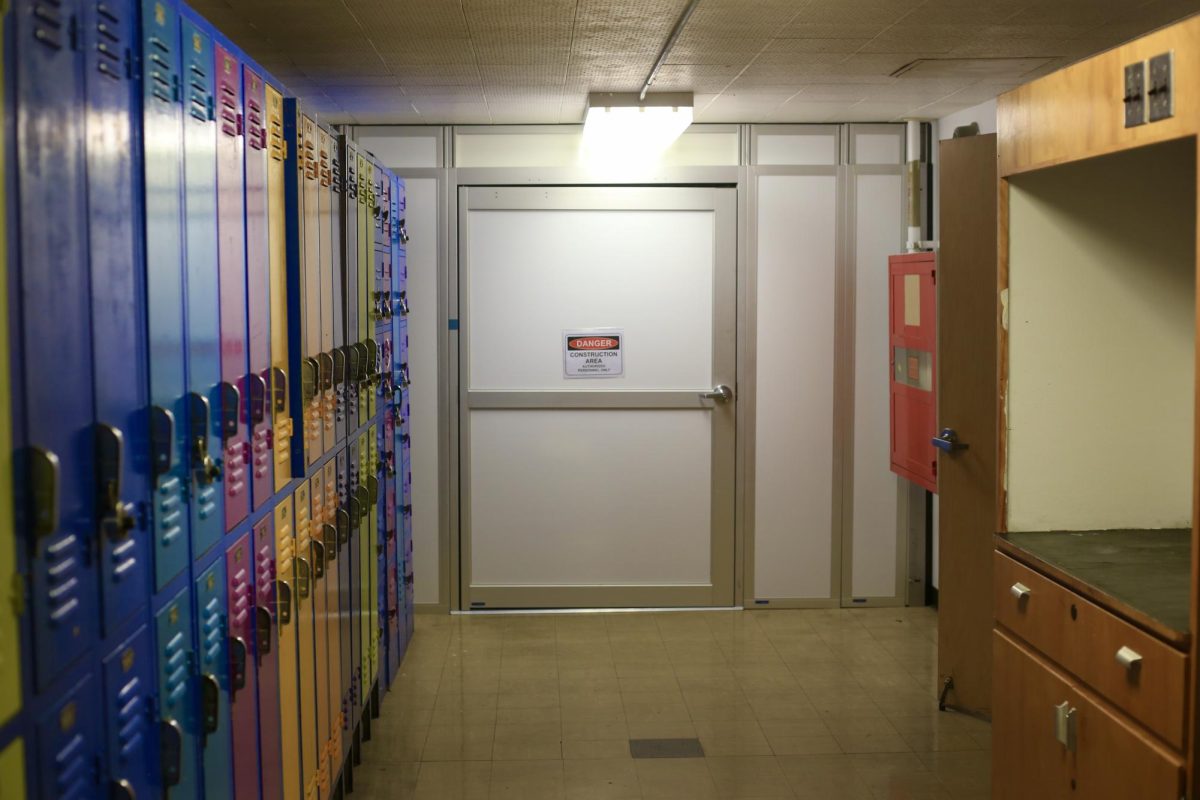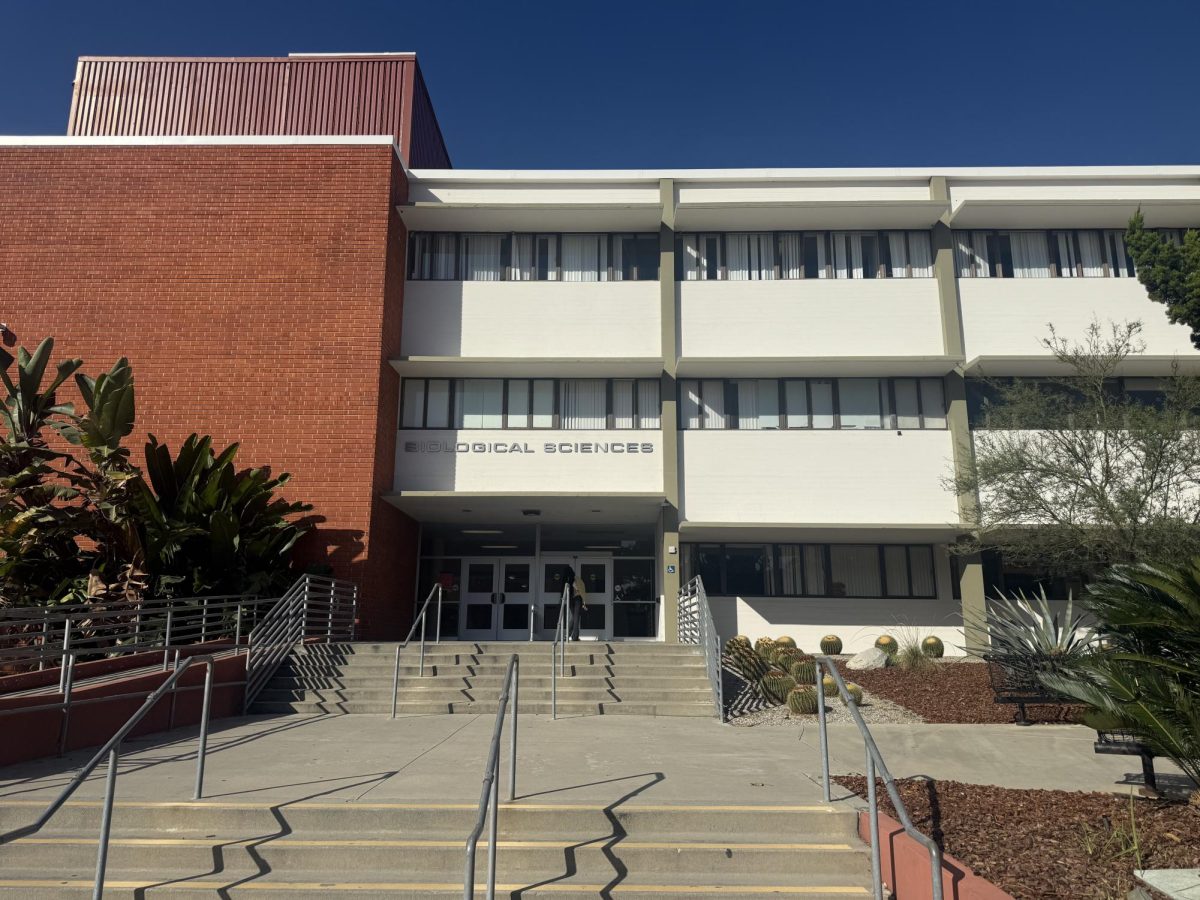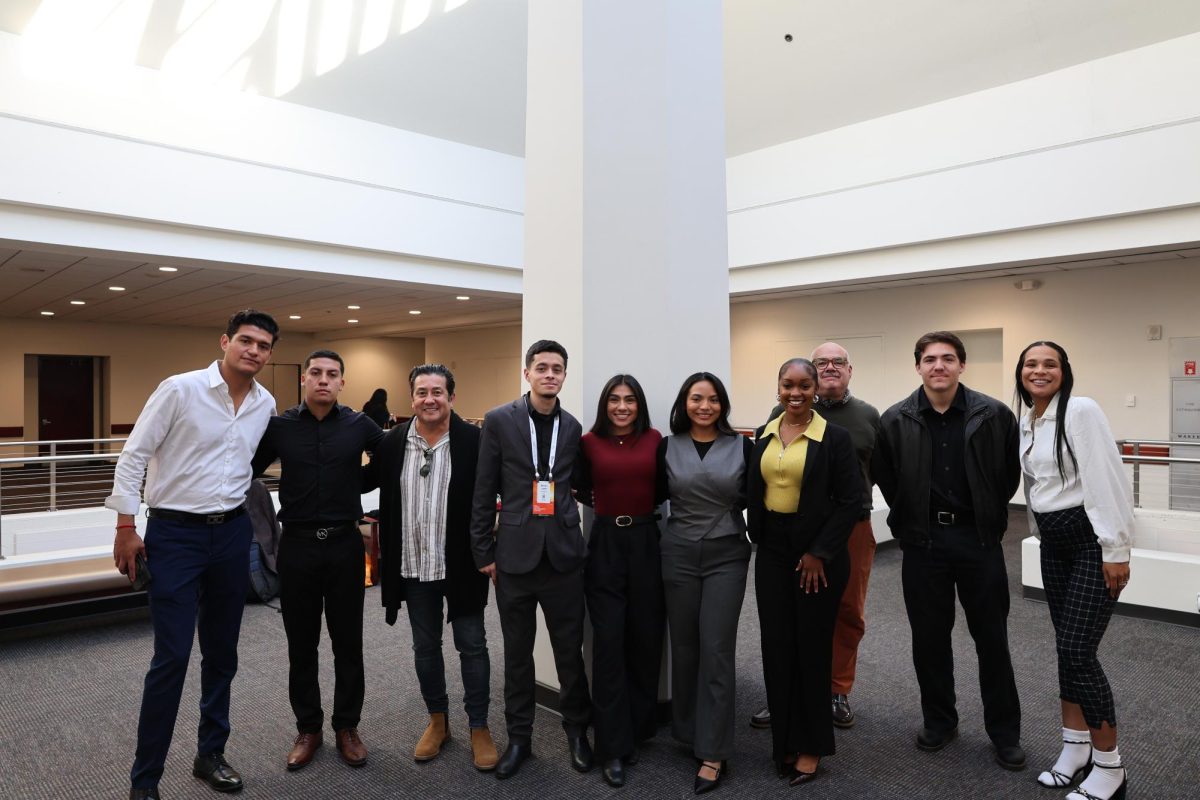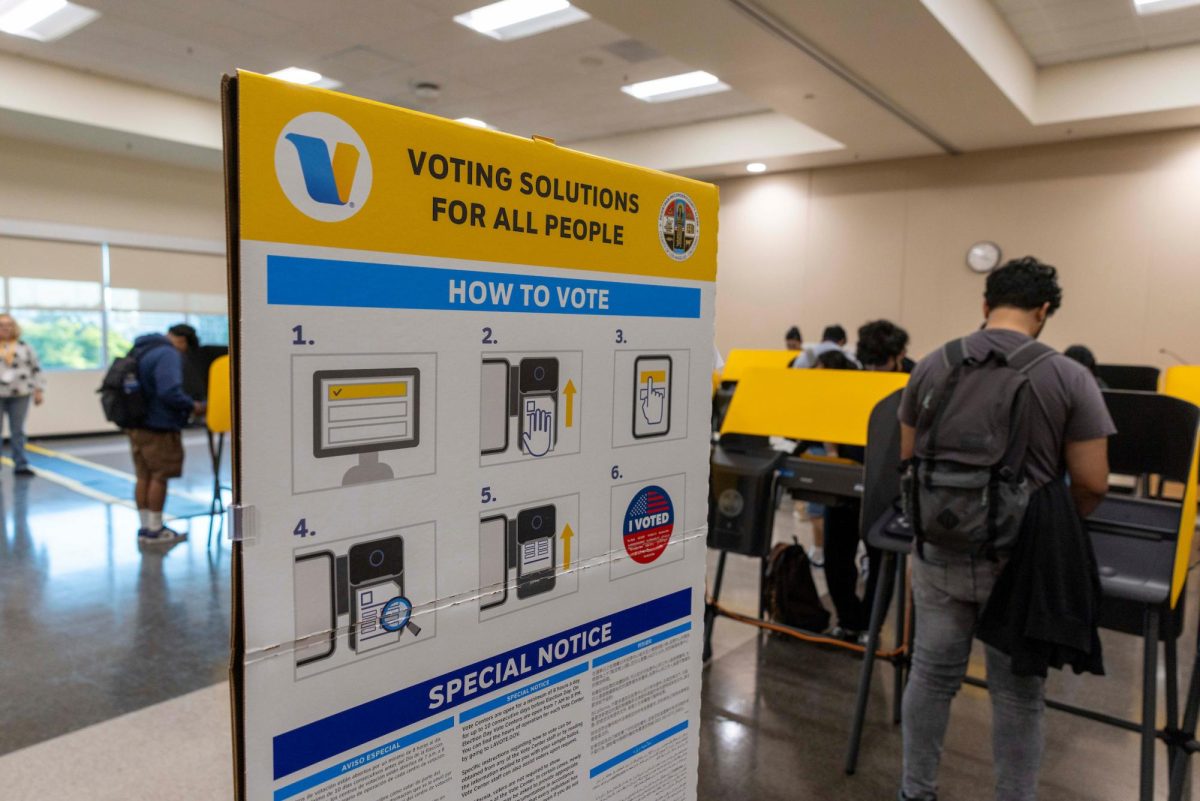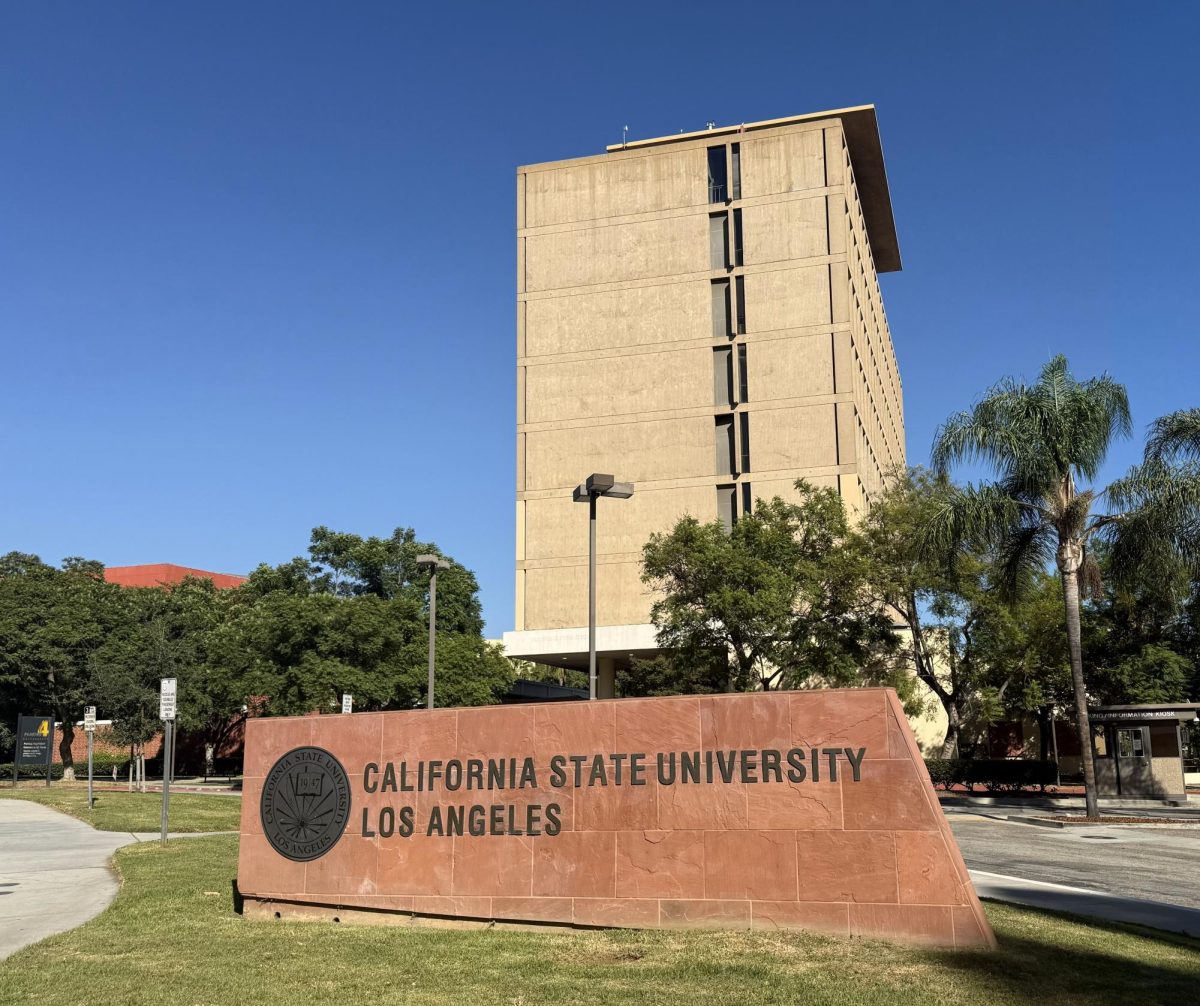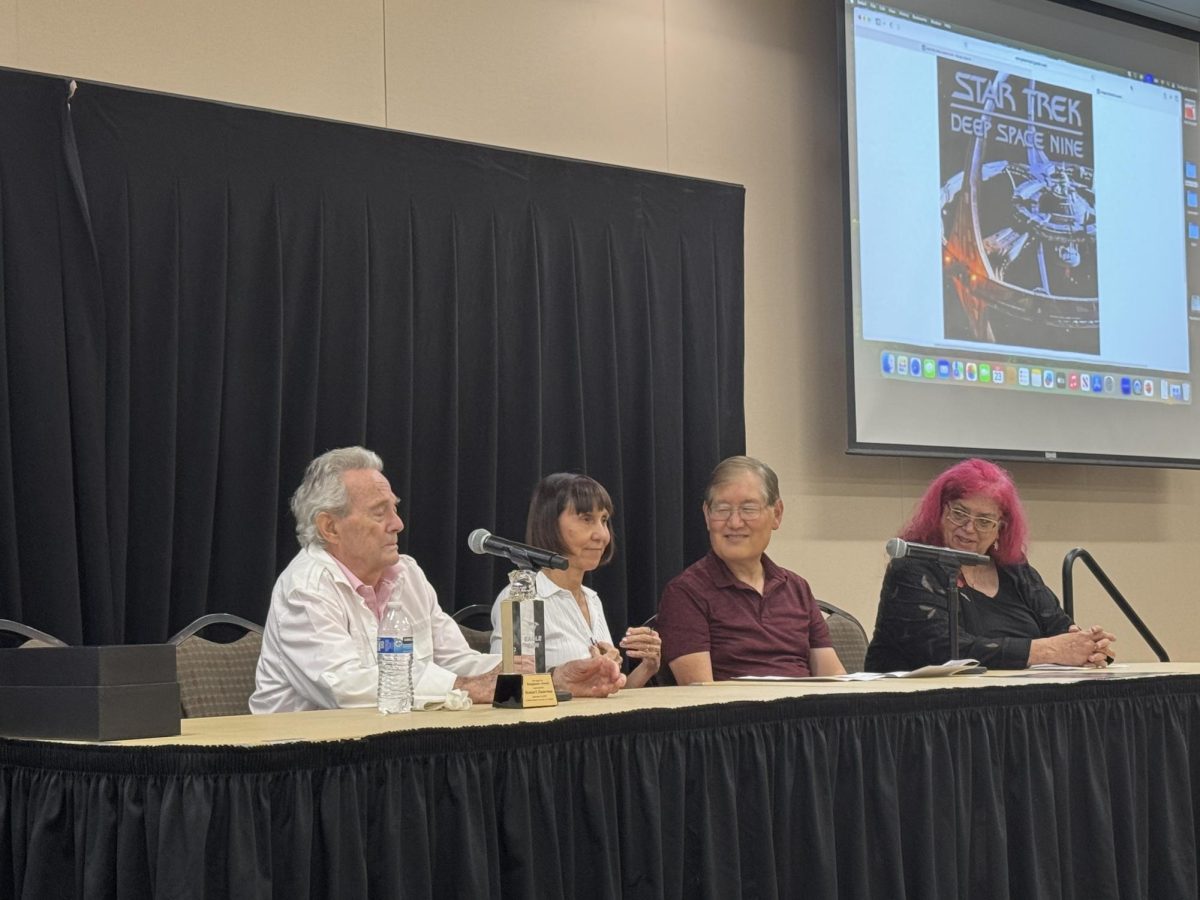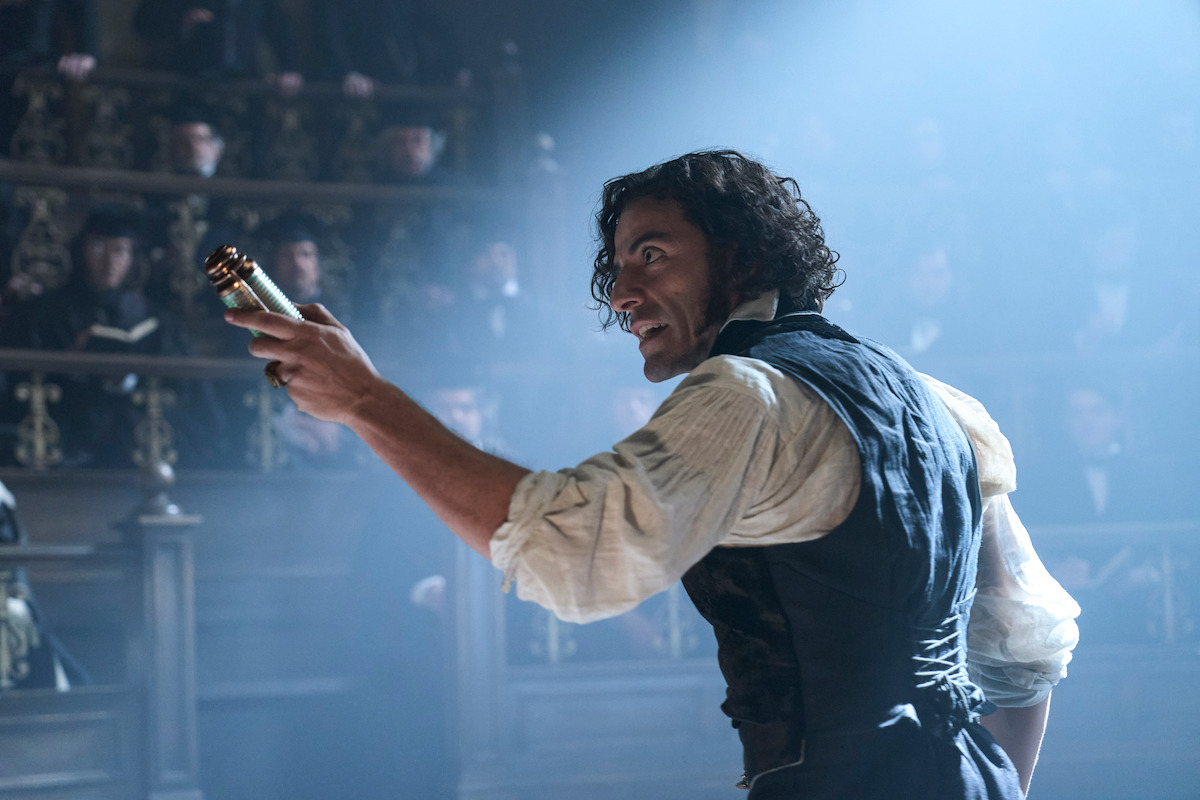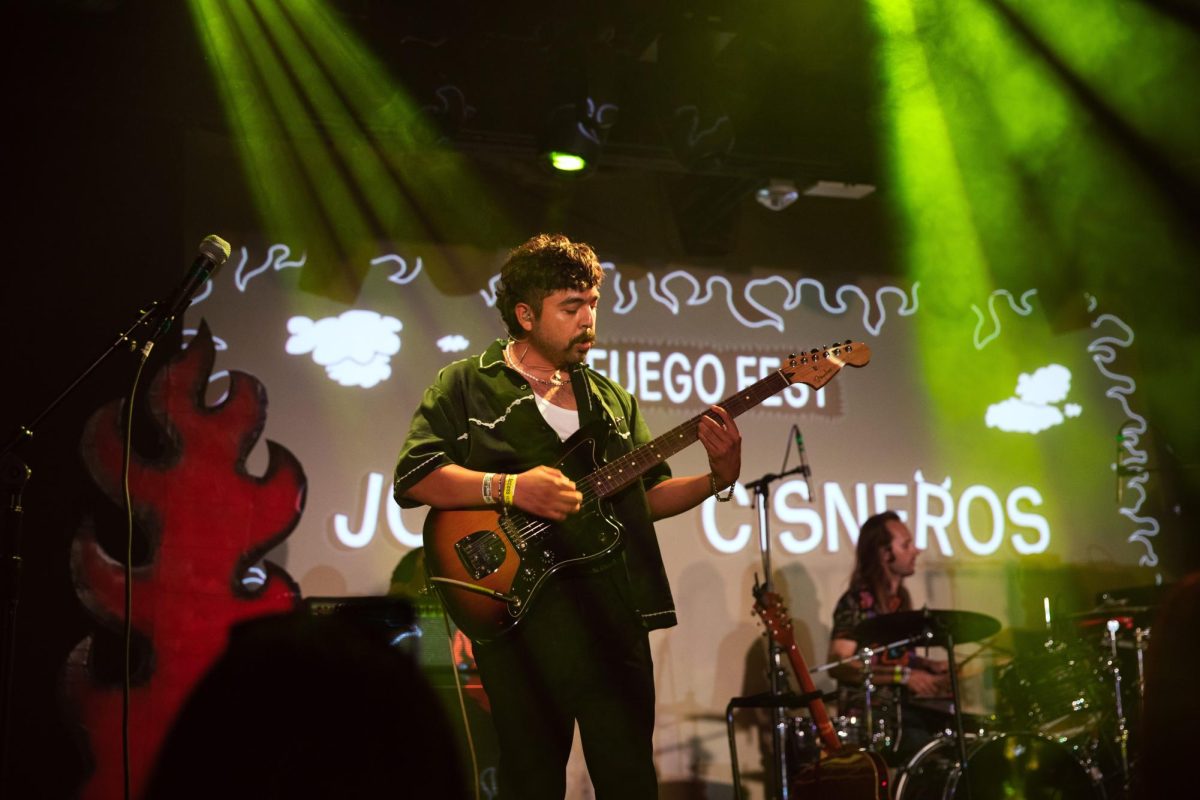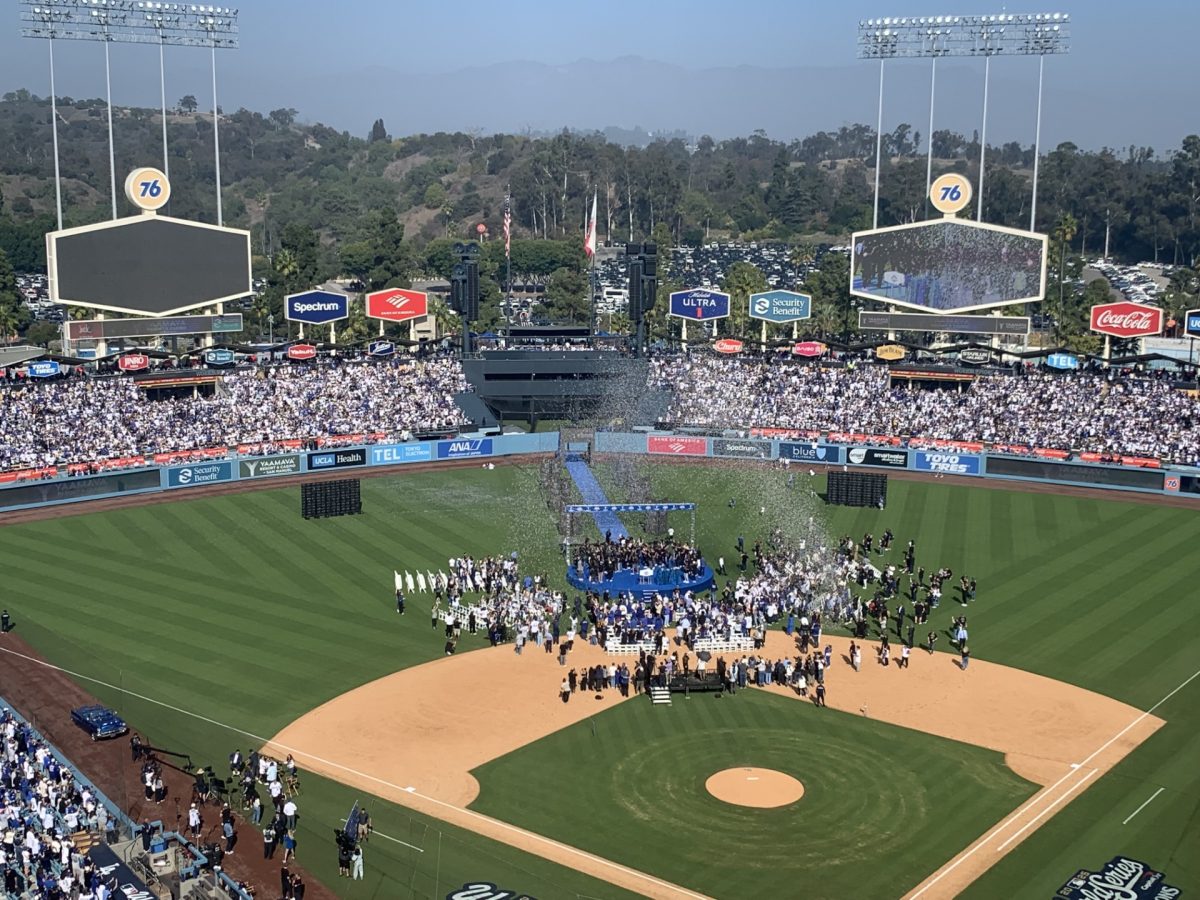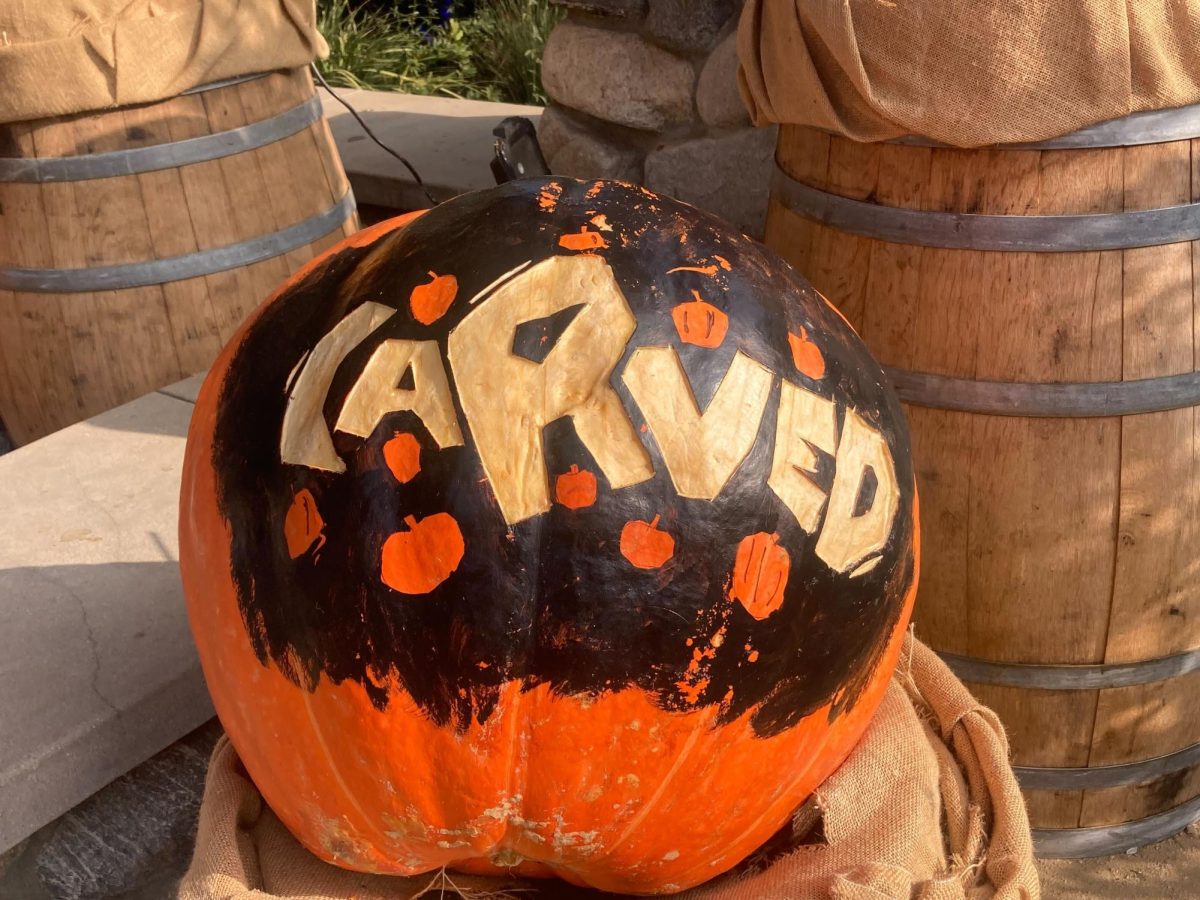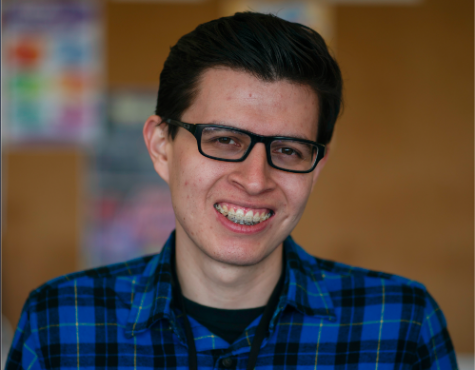“The time has come for us to walk in the sunshine. We don’t have to ask permission to do it. Here we are!”
Those words of empowerment by LGBTQ+ activist Martha Shelley were displayed via projection at Cal State LA’s National Coming Out Day event presented by the school’s Gender & Sexuality Resource Center (GSRC). The event featured two speakers discussing anti-blackness, intersectionality and queer activism history.
Ciarra Jones, one of the speakers who’s also the coordinator of the GSRC, said she doesn’t necessarily expect LGBTQ+ people to come out on National Coming Out Day.
“Coming out is a lifelong process,” said Jones in an interview with the UT. “I prefer to conceptualize it as coming in, inviting people to come into their identity. I think of [it] as a day of reflection.”
During her presentation, Jones discussed anti-blackness and how it affects the queer community.
“Disrupting anti-blackness actually reminds us all that oppression is inextricably linked,” she said. “Our oppressions are never disconnected.”
The second speaker, Liberal Studies professor Melissa Saywell, gave an overview of LGBTQ+ activist history with a primary focus on the Stonewall riots.
In 1969 New York City, police and queer activists violentally clashed after a raid of the Stonewall club, a popular establishment among queer patrons. The riots are considered a significant event in LGBTQ+ civil rights history.
Jones said it’s not the type of history normally taught at schools, despite its importance to the queer community.
“[Knowing this history] empowers current LGBTQ people to claim their identity and claim their right to humanity,” she said. “And another part is that it reminds us that we’ve always been here, that LGBTQ people aren’t new.”
Just one day prior to the GSRC hosted event, the U.S. Supreme Court heard arguments on whether or not queer workers are protected under a federal discrimination law.
David B. Cruz, Newton Professor of Constitutional Law at USC, flew out to Washington D.C. and woke up at 3 a.m. to spectate the court’s deliberation.
In a phone interview with the UT, Cruz pointed out that one of the plaintiffs is a transgender woman who was fired once she notified her employer of her transition.
He explained that if the Supreme Court rules in favor of the plaintiffs, it would provide LGBTQ+ workers “freedom to come out without fear of retaliation from their employers,” as well as cement “job security lacking in parts of the country.” Less than half of U.S. states have anti-discrimination laws protecting queer workers.
Communications major Dash Gomez, who attended the campus event, asserted its important to be “present and vocal” as a community.
“[Being] visible as queer people, as trans people, is important because we constantly have to be fighting for our rights,” said Gomez. “It’s sad, but it’s not something that’s just going to be given to us.”
Jones invited students to participate in future GSRC functions. “All the programming we run is for everyone to come to learn and to grow together.”
One of the upcoming functions is the podcast, “Food 4 Thot,” which will be hosted live at the U-SU on Oct. 17 from 5 p.m. to 7 p.m.
For more information about upcoming events, students can visit the GSRC, which is located on the second floor of the U-SU as part of the Cross Cultural Centers.

